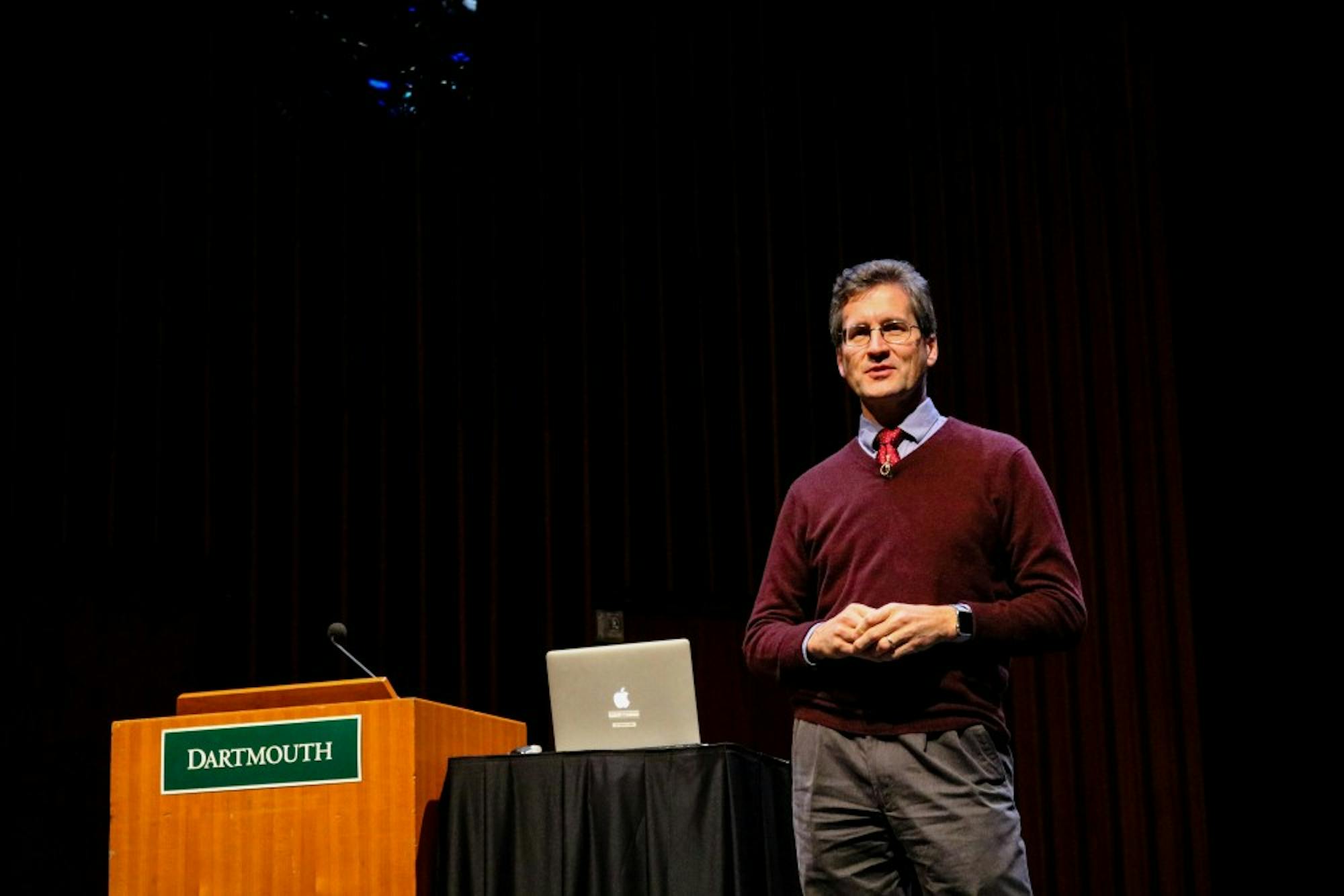Over 150 Dartmouth students, faculty and community members gathered at a town hall on Wednesday afternoon to hear from outgoing interim provost David Kotz ’86 and Thayer School of Engineering Dean Joseph Helble, the new provost of the College. Presenters also addressed the College’s reaccreditation process and the upcoming expansion of the Thayer School.
Executive vice president Rick Mills introduced Helble, who is set to take over from Kotz at the end of this month.
During the town hall, Kotz reflected on his 11 months as acting provost.
“I have deep feelings for this institution and want to make it better,” he said.
He noted that, as an avid hiker, he subscribed to the “leave no trace” ethic and wanted to leave the provostship in a better state than he entered it.
Helble then spoke about his plans as provost, saying his role will be to remove barriers for those seeking resources and opportunities at the College and said he will focus on the ways the College will use the funds from its recent capital campaign.
“We need to look at what the best use of the resources will be 10 to 25 years down the road,” he said.
Helble also fielded questions from attendees. One audience member was concerned about Helble’s transition from his role overseeing the mainly graduate-level Thayer School to being provost over a majority of undergraduate students. Helble responded by saying that over 50 percent of undergraduates took an engineering class during their time at Dartmouth, and that engineering is often the third most popular undergraduate major on campus. Even so, he said he welcomed the new challenge.
“I’m in a mode of learning,” he said. “I would characterize it as an opportunity.”
Jon Kull, dean of graduate and advanced studies, then gave a presentation on the College’s efforts to prepare for an upcoming institutional review by the New England Commission of Higher Education. Conducted every 10 years, with an interim report submitted every five years, the NECHE accreditation process is a self-regulatory, peer-reviewed evaluation based on standards created by the New England Association of Schools and Colleges.
While a voluntary and non-government evaluation process, NECHE accreditation can mean the approval or denial of annual applications for federal funds, according to Kull, who heads the steering committee responsible for compiling a report for review.
“It’s kind of like a driver’s license is voluntary, unless you get pulled over by the police,” he said during the presentation.
Dartmouth’s last interim report was submitted to the NECHE in 2015. To prepare for the reaccreditation process in the fall of next year, the steering committee is compiling a self evaluation report on the College based on eight performance criteria. The report will become available to the public for feedback in early spring, according to Kull.
The report will be due on Aug. 1. During October of next year, an outside review board will visit the campus to conduct an evaluation, and Kull said he expects the results to be released by early 2020.
Mills also commented on the reaccreditation process during the meeting, noting that the chance of denial was very low.
“We don’t think that’s a big risk, but we take this seriously and we’re working through it,” Mills added.
The town hall also featured a presentation by associate vice president for planning, design and construction John Scherding on the upcoming expansion project on the west side of campus. Set to start this winter, the project will include new building construction, an expansion of the riverside rowing complex and the restructuring of access roads to and through the area.
The Town Hall also provided an overview of two new buildings set to be completed on the west side of campus by 2021. The plan calls for the construction of a computer science building, set to replace the 150-car Cummings Parking lot. The lot spaces will be replaced by a 340-car underground parking lot included in the building’s plan. Another new building, the planned home for the Arthur L. Irving Institute for Energy and Society, will be located at the east end of Tuck Drive.
Other features of the project include temporarily closing Thayer Drive for improvements and opening Old Tuck drive as a one-way, east-bound access road.
“That will be a new traffic cut through, if you will, and a new way to avoid traffic in town,” Scherding said.
The project will also necessitate the closing of several parking lots on the west side for construction. Temporary lots with shuttle service will receive overflow.
“We recognize this is an inconvenience, but it really is necessary for this construction,” he said.
According to Scherding, the project’s main goal is to make the area more walkable.
“The longterm intention for the West community is for it to be a pedestrian campus,” he said.




